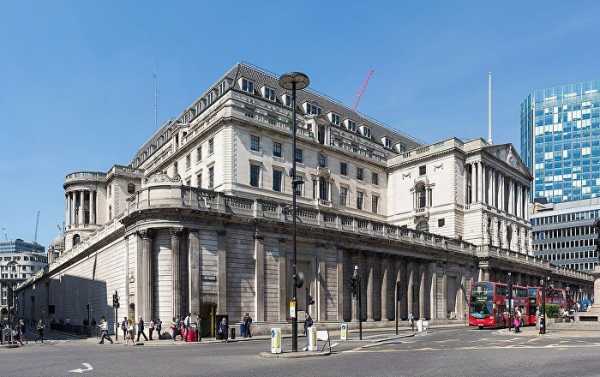
Bank of England (BoE) chief Mark Carney has suggested British and international financial institutions prepare to address possible risks stemming from mainland China’s shadow banking, namely its so-called “hidden debt” and high debt-to-GDP ratio.
Kristian Rouz — Mark Carney, governor of the Bank of England (BoE), said mainland China was facing mounting risks in its financial system, which could potentially produce hazardous spillovers throughout the world.
Carney made his remarks on the 10th anniversary of the last global financial crisis, saying high levels of debt and shadow banking remain a major concern despite improvements in international finance.
The BoE chief stressed that China’s gigantic manufacturing base and export-reliant economy expose the majority of advanced economies to risks brewing within the Chinese financial system. Carney stressed that British financials must prepare to address possible challenges posed by non-performing loans (NPLs) and the underreported leverage of many Chinese companies.
“One of the bigger risks for the global economy are developments in China,” Carney said. “Their financial sector has developed very rapidly, and it has many of the same assumptions that were made in the run-up to the last financial crisis.”
Carney’s remarks come amidst mounting concerns of many economists, who say the next big crisis may originate in Asia-Pacific — due to the region’s increased prominence in the global economy over the past 10 years.
International credit rating agency Moody’s said Beijing’s efforts to crack down on the $10-trillion shadow banking industry have so far produced quite modest results. China’s high-risk non-bank credit products still meet rife demand from both the Chinese and international companies, not least due to China’s stringent monetary regulations.
Beijing is “taking a more gradualist approach in response to slower domestic credit growth and a more challenging external environment,” Michael Taylor of Moody’s said.
Additionally, China’s provincial debt, or loans taken by regional governments and guaranteed by Beijing, is becoming increasingly unstable.
China’s overall debt — increasing its so-called “hidden debt” — stands at 300 percent of its GDP amidst slower economic expansion compared to the past few years. The mainland’s trade tensions with the US are adding to these concerns.
“With debt approaching 300 percent of the gross domestic product, any interest-rate increase would raise debt-servicing costs substantially and place enormous pressure on Chinese firms,” Bloomberg opinion contributor Christopher Balding warned.
And BoE’s Carney said these risks might pose a challenge to British firms as well, both those operating in the Chinese market and those rooted in the Albion. Carney stressed that the Chinese financial system was facing a declining quality of financial products and that the interconnectedness of the global financial system meant these risks posed a challenge to the UK as well.
“So there is a big so-called shadow-banking sector in China there is a lot of lending that’s based on very good past experience,” Carney said.
The BoE governor didn’t explicitly specify what measures he would take to offset the mounting concerns, suggesting the Chinese government was likely able to contain the risk for now.
But Chinese experts say Beijing is likely unable to solve the problems of shadow banking and its high debt-to-GDP ratio in the near to medium term. Meanwhile, the global economy might not be able to afford the Chinese risk when the current expansion cycle ends with the onset of a new global recession in the coming years.
“We could see the first debt default of a local financing vehicle in [the] coming months,” Larry Hu of Hing Kong-based Macquarie Capital said.
However, Chinese officials have ramped up their pressure to improve the nation’s financial health. Regulators in Beijing have demanded that local authorities become more transparent and responsible in their borrowing practices.
Although this may not entirely prevent turbulence in China-related finance, it will at least prepare to help an efficient response to some of the most disconcerting developments of the past few years.
Sourse: sputniknews.com






